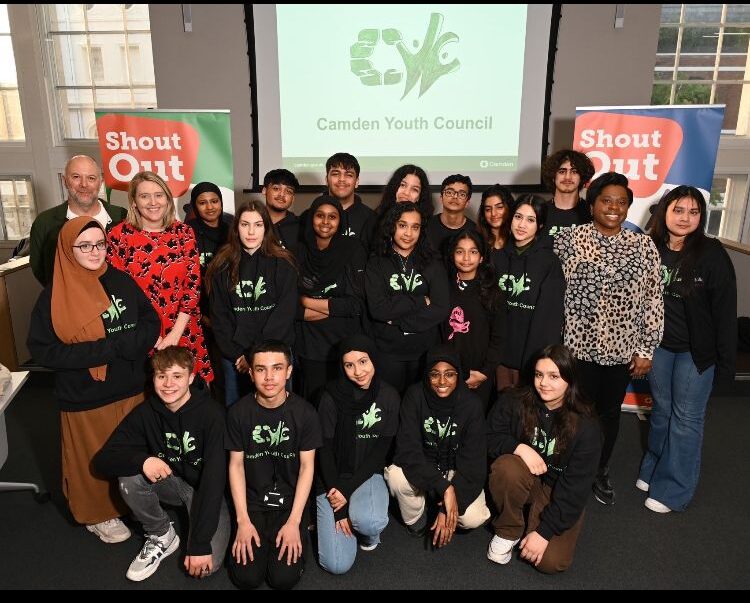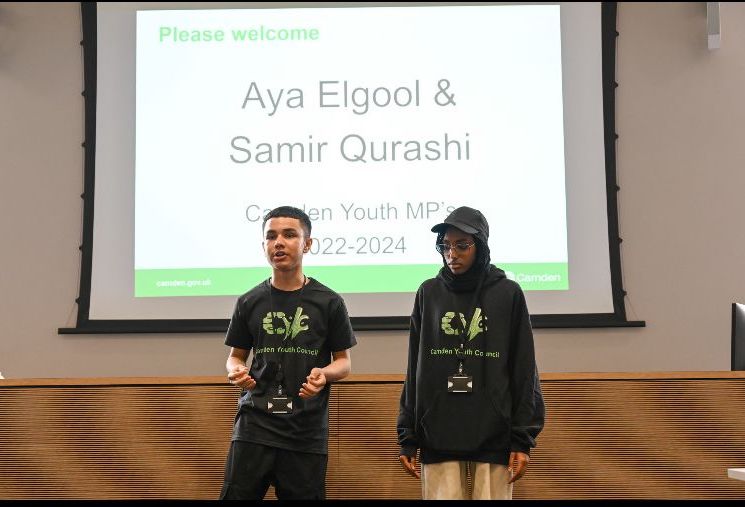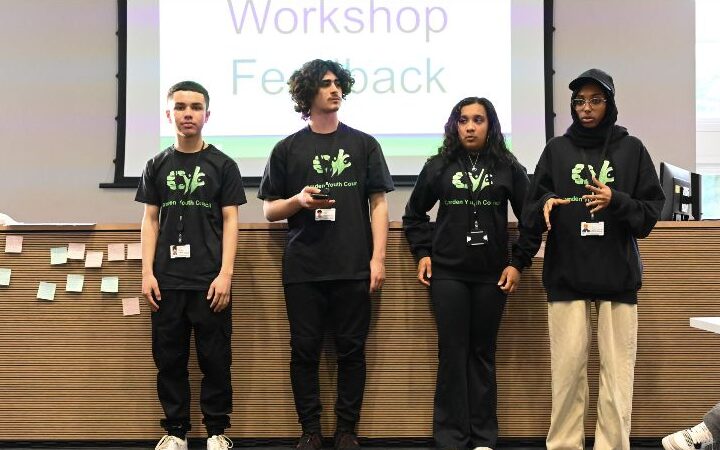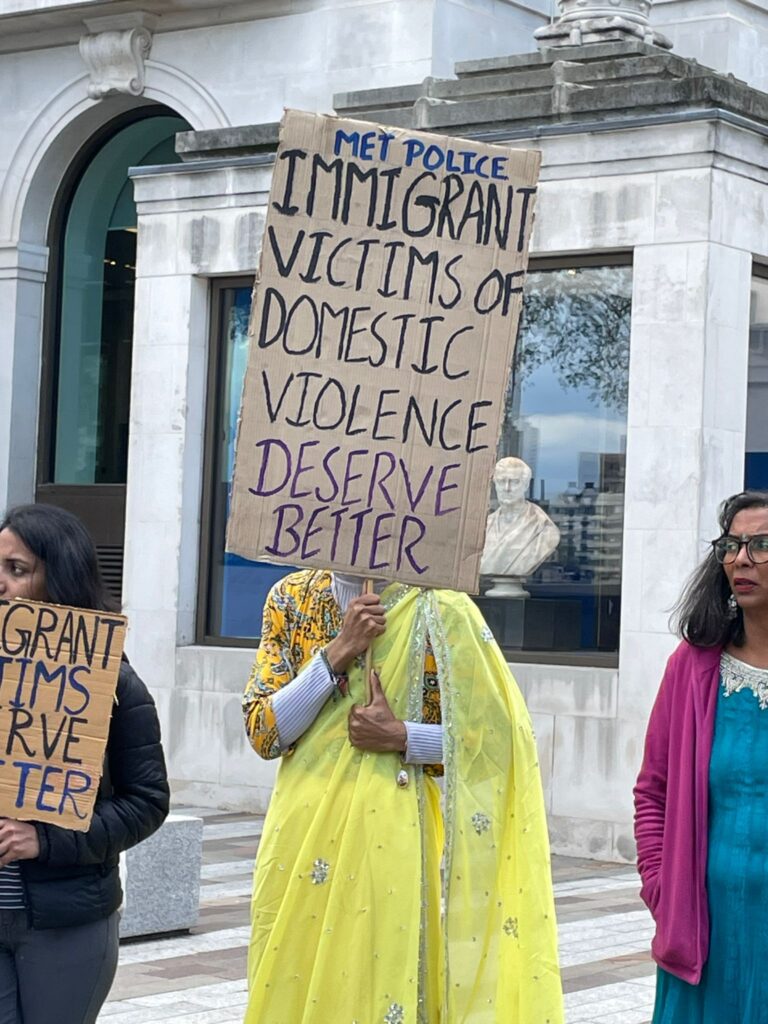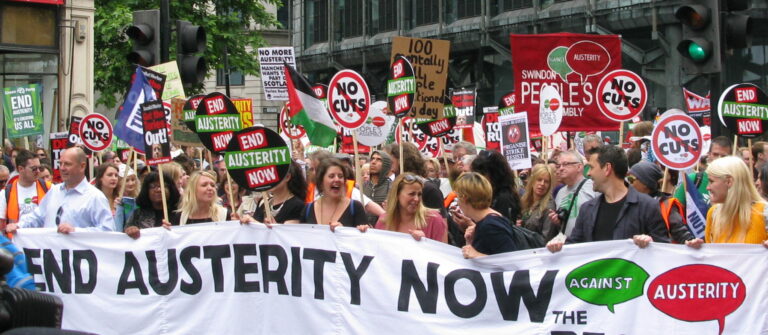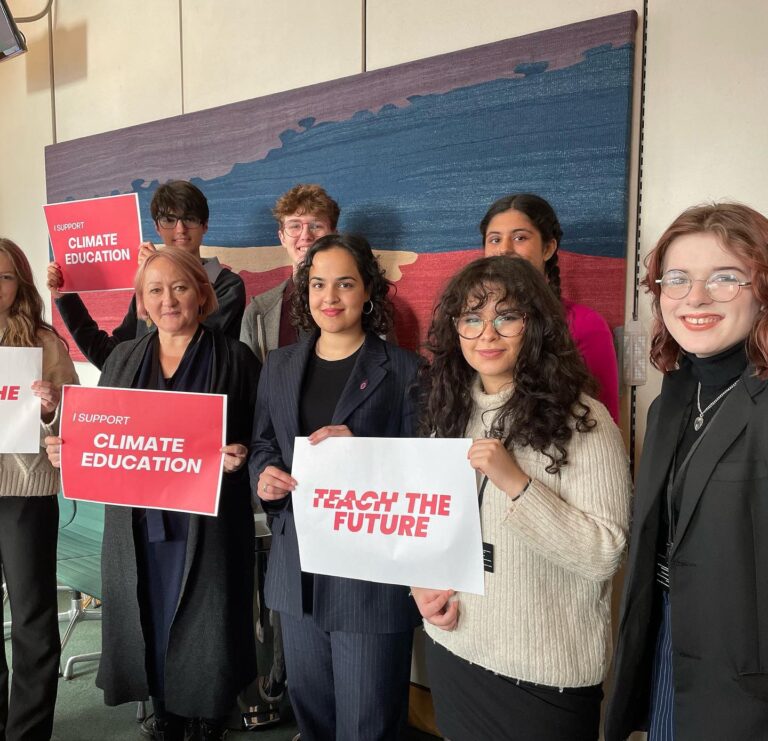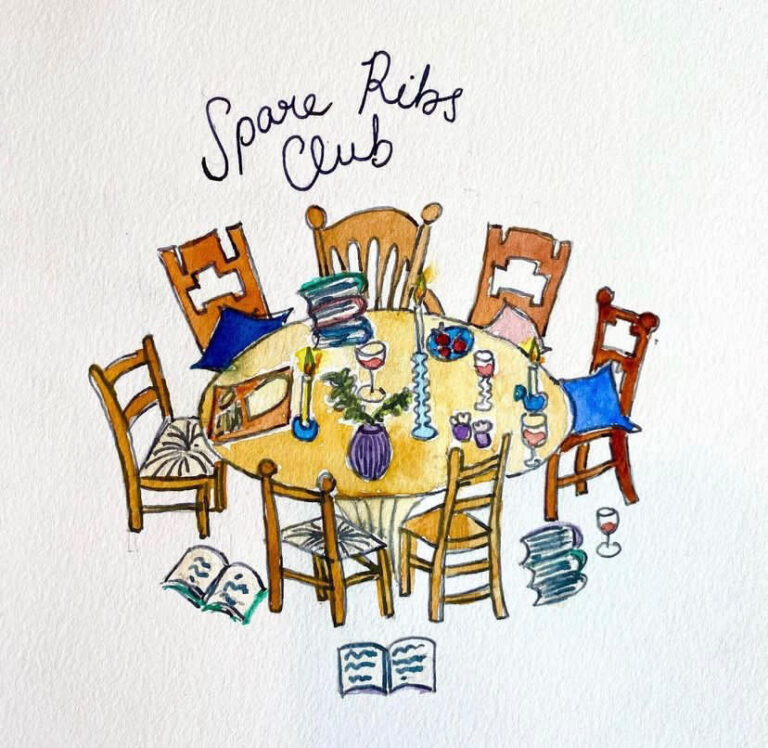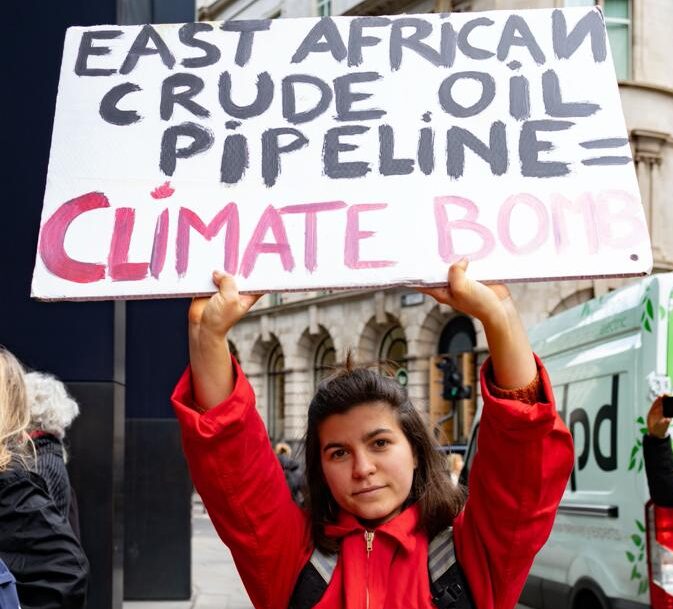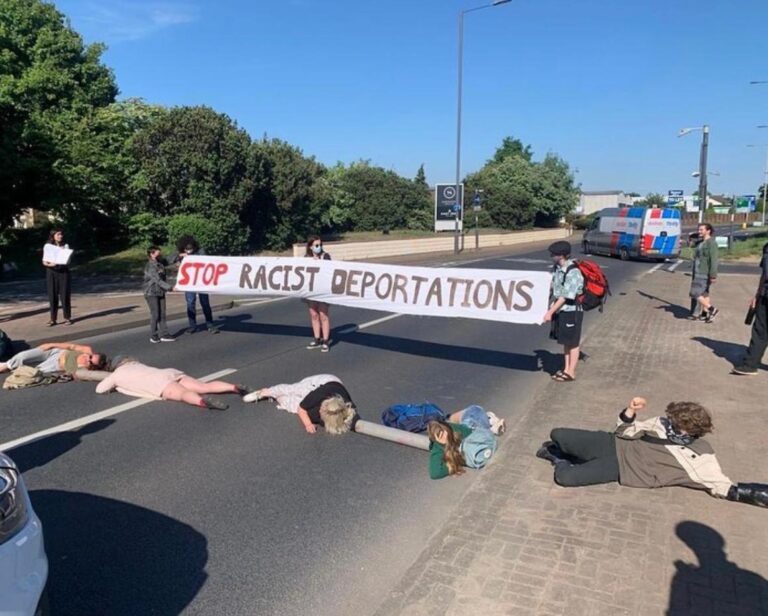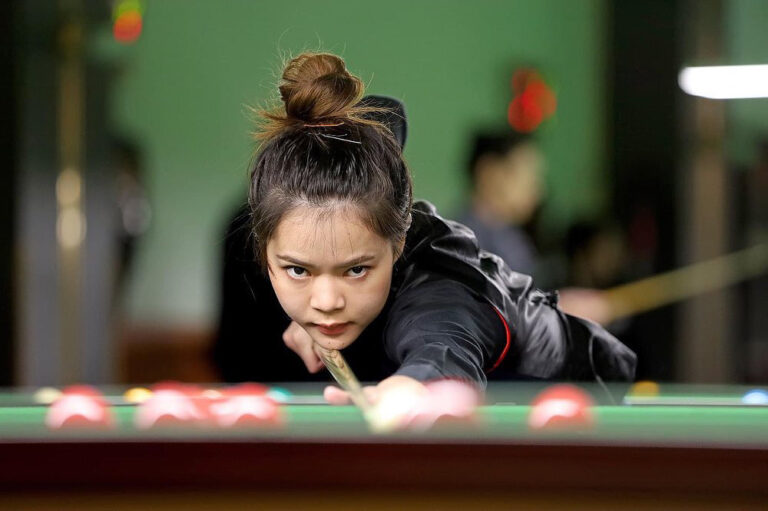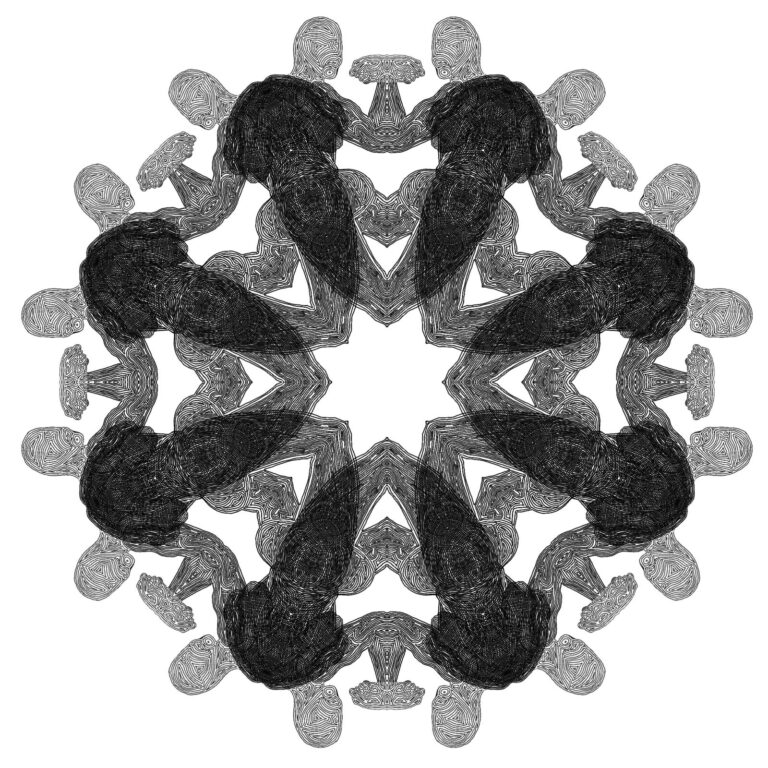Credits : @camdenyouthcouncil_
“Did you see that Keir Starmer wants to lower the voting age to 16?” Youth Worker Rashid Ali, asks the young people present at the Camden Youth Council Meeting. “That was shortly after Samir and Aya met with him.”
Samir Qurashi and Aya Elgool are the elected Youth MPs for the London Borough of Camden for 2022 to 2024, chosen by young people aged 11 to 18 in the borough. This means that on a national level they are part of the UK Youth Parliament and on a local level they are part of the Camden Youth Council, a bi-weekly assembly of politically engaged 13 to 19 year olds to discuss topics that are affecting young people within the borough as well as organise workshops and events.
On a calm, sunny evening, the young council members are gathered in a meeting room at Camden Headquarters close to King’s Cross. They have an agenda and address the projects they have been working on. This could be any council meeting were it not for the anxious mention of upcoming exams and results that gives away their age.
Both Aya,16 and Samir, 17, grew up and still live in Camden. Witnessing problems and issues their friends and family in their community face first-hand motivated them to run for office.
“I basically wanted to be the change that I wanted to see”, Samir explains, “I don’t think the youth are well represented within the government. There are very few young MPs in Parliament and that probably means our voices aren’t being heard. So stuff like this actually gives young people the chance to make changes.”
The UK Youth Parliament Programme, that Aya and Samir are a part of, was initiated in 1998 by Conservative MP Andrew Rowe who wanted to give young people in the UK the opportunity to address the issues that matter most to them. Today it is made up of 202 constituencies and 391 seats, with each Youth MP representing up to 20,700 young people.
Elections are organised by the councils themselves, with everyone aged 11 to 18 being eligible to vote. Each candidate is required to write their own manifesto.
When Aya and Samir were elected they decided to merge both of their manifestos, a decision that now influences the work of the Camden Youth Council. Together they decided on the four key issues they wanted to focus on and divided the Youth Council into four subgroups: Mental
Health, Education and Opportunities, Youth Safety and Environment. They, and their Deputy MPs Hdayet Otaky and Zara Loyas each lead a subgroup. In tonight’s meeting, the Youth Council discusses how each subgroup is progressing and what they can do to further improve.
Samir is responsible for the Mental Health subgroup, a topic he cares about deeply. He recently worked with a few Youth Council members to come up with survey questions designed to get a better insight into the mental health of young people within the borough. Once Samir receives the results of the survey, he wants to work with Camden Council’s Health Department on improving mental health services for young people. In the meeting he talks about an information leaflet he would like to create. As adult supervisor, Rashid Ali oversees the meetings, challenges the council members and gives suggestions. Samir nods affirmingly and notes the idea down.
Unsurprisingly he would like to do something related to mental health in the future: “I’d like to be a doctor then hopefully go into politics to do work around health and well-being; it would be a dream to become the health secretary one day,” Samir explains.
From the way they speak about their work, it is clear that both Aya and Samir are passionate about being Youth MPs. But as young people working within traditional forms of politics they are in the minority. A report published on political disengagement by the House of Commons in 2022 showed that while 18–25-year-olds were least likely to be registered to vote or participate in traditional politics, they participate in other forms of political life. And according to a YouGov study conducted in 2021 young adults are least likely to say democracy serves them well.
Asked why they wanted to be a part of more traditional political institutions, Samir hesitates replies: “Well it wasn’t like at the time I was able to think, oh, I don’t have faith in politics. And I kind of just thought it was a comedy sketch.”
Also Read: Boxing Champs Fight Against Knife Crime
Still, Aya appreciates politics as a way of achieving social change: “If I want to change the system, I kind of have to play with it to a certain extent. I’ve been on both ends of the spectrum. I’ve seen it from the outside, where I had zero connections and from the inside, when it’s way easiest to have your voice heard and be taken seriously.”
Both she and Samir feel that whatever they say to members of the council is being taken into account and can lead to change.
As Youth MPs they are invited to a lot of events where they meet members of Camden Council as well as politicians such as Labour Party leader Keir Starmer and local MP Tulip Siddiq. “When I go to events like this with people who are really close to the government food chain, whatever I say to them, they will listen to me, and I have seen them listen to me. I have seen them be passionate about the conversations that we’ve had”, Aya says.
